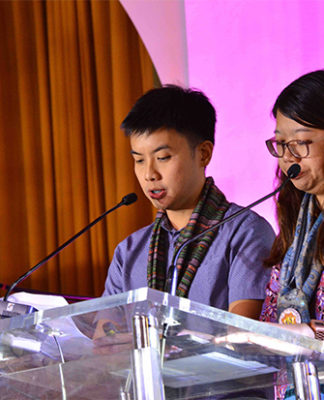IN SPITE of its preparations, the Commission on Elections (Comelec) cannot promise the Filipinos perfect elections on May 9.
As the constitutional body tasked to administer honest, clean, and orderly polls, the Comelec can only do so much to fulfill its duties.
Since the beginning of the voter registration for the May 2016 elections, the Comelec has been bombarded with numerous complaints, especially the new biometric requirement.
The Comelec was accused of not allotting a reasonable amount of period for voters to fulfill the new requirement.
Maybe the culprit was the Filipino’s cramming practice, which was why many failed to register and meet the deadline despite the long period allotted for registration, and the numerous reminders and announcements. But the Comelec now does not have the moral ascendancy all along.
One of the biggest problems to hit the elections this year would probably be the hacking of the Comelec website, which exposed the voter information of more than 50 million Filipinos.
It raised the further possibility that the election results could be hacked or manipulated, raising other vulnerabilities of the election system along the way.
The Comelec downplayed the hacking, saying that no confidential information had been compromised and that the incident would not affect the national polls.
But how could the commission expect 54 million Filipinos to entrust their votes to an election system that could not even secure their identities?
Worse came to worst when a renegade website posted the leaked data from the Comelec.
Shockingly, the Comelec dealt with the aggravation by virtually passing on the blame to the voters themselves, who were warned not to use the website so that hackers would not be able to “steal your information.”
The information has already been stolen. And the Comelec continues to merely prod on voters to focus on choosing the right candidate without ensuring the sanctity of the ballot.
Even though the elections are on May 9, orderly and honest elections should have begun a long time ago through effective and competent preparation that has anticipated all contingencies.
But alas, the Comelec system seems to be falling apart.
Instead of inspiring the confidence of voters, the Comelec appears to be the primary promoter of doubt, raising issues on possible postponement or a no-election scenario given the Supreme Court ruling on voter receipts.
Even the reliability of the poll results are now doubtful after Comelec Chair Juan Andres Bautista raised issues on the security and comfort of election inspectors given the possibility of power outage on election day.
While it is good that the Comelec is checking all possible scenarios and problems that may impede the electoral process, it must do so with the hope of securing a successful elections instead of instilling fear and doubt among voters.
More than promoting wise choice of candidates, the Comelec should live up to its identity as the “premier guardian of the Philippine ballot.” It must protect the identities of the voters who trust in the electoral process, monitor candidates and reprimand those who violate the law, ensure orderly and peaceful elections on May 9, and tally and proclaim the rightful winners of the elections.















